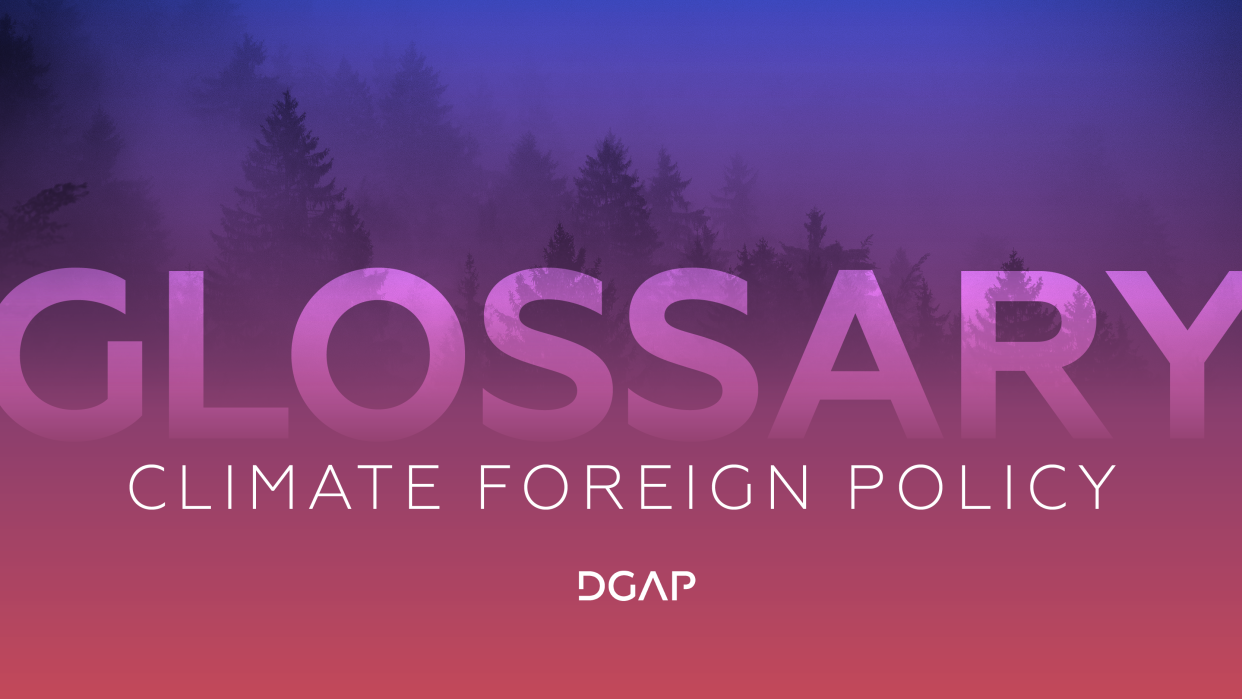
Key Terms in Climate Foreign Policy
Our glossary on climate foreign policy offers insights into key terms such as subsidy reduction, intergenerational justice, common but differentiated responsibility, climate justice, loss and damage, and the phase down/phase out of fossil fuels. Deepen your understanding of these important issues here.
Browse the interactive version here on Genially:

